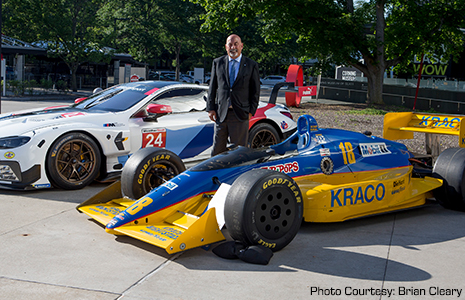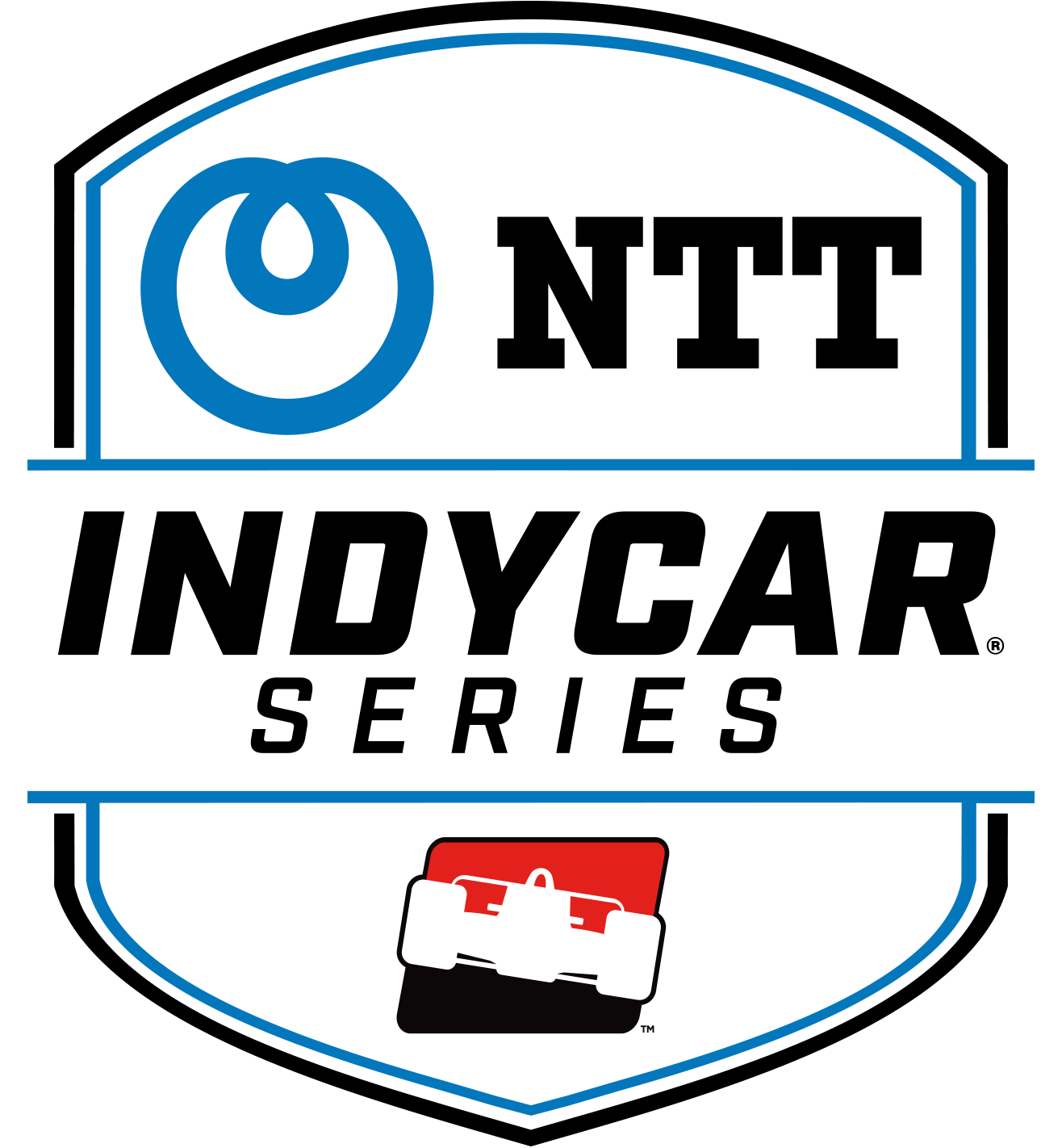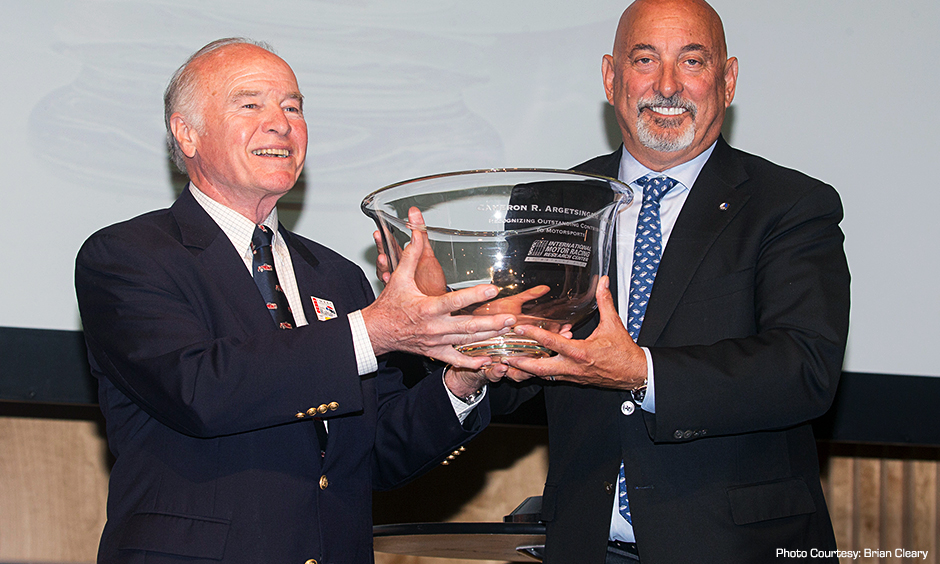Bobby Rahal honored for lifetime service to motorsports
JUN 28, 2019
Bobby Rahal’s humble reflection on a worthwhile life in racing is always traced back to its origin.
“First off, a lot of this stems from the fact that what got me into racing was I was a fan,” Rahal said during Tuesday’s Pro Driver Fantasy Camp at Autobahn Country Club to benefit One Cure. “I loved racing. I loved watching racing and never thought I’d do it. I ended up doing it. Now I’ve retired (as a driver). I ended up making a pretty good living at it, then opportunities came from it. I’m retired, but I’m still involved because I’m a fan of the sport.”
Rahal has maintained a continual commitment to the sport as an NTT IndyCar Series team co-owner of Rahal Letterman Lanigan Racing and philanthropist for several community outreach programs including extensive fundraising through the Bobby Rahal Foundation. One of his affiliations for about a decade was with the International Motor Racing Research Center in Watkins Glen, N.Y. The IMRRC presented Rahal with the 2019 Cameron R. Argetsinger Award for outstanding contributions to motorsports at a Thursday dinner in Corning, N.Y.
“It’s all because I love the sport,” Rahal said. “I wanted to have an impact. I wanted to contribute more than just writing a check.
“To be honored by them is pretty special because they’re a special group of people, let alone the value that is created by the archives that are created by the IRRMC. That center is probably the single-best repository of motor racing archives anywhere in the country certainly and maybe anywhere in the world. I had a chance to work there with a lot of great guys, all passionate about motor cars and racing.”
 Previous winners of the award include fellow racing icons Chip Ganassi, Richard Petty, Roger Penske, Mario Andretti, Jim France and the France family. Sahlen’s, NASCAR, ISC, WGI and IMSA are presenting sponsors of the award, which memorializes Argetsinger, founder and organizer of the first races at Watkins Glen seven decades ago.
Previous winners of the award include fellow racing icons Chip Ganassi, Richard Petty, Roger Penske, Mario Andretti, Jim France and the France family. Sahlen’s, NASCAR, ISC, WGI and IMSA are presenting sponsors of the award, which memorializes Argetsinger, founder and organizer of the first races at Watkins Glen seven decades ago.
“I kind of joked a while back with him, ‘Man, if you’re getting the award, it must mean they’ve run out of candidates,’” Rahal’s son, Graham, said. “But in all fairness, there’s nobody probably who has given back more. What I mean by that is not just writing a check and running a team. I can’t tell you how many times drivers have come to my dad for advice looking for help to further their careers.
“No matter what paddock or garage you go in, whether it’s INDYCAR, whether it’s NASCAR, drag racing or sports cars, dad has got a name that’s synonymous with being very well-respected and being a guy of very high class, a guy who is willing and committed to give back to his sport.”
Bobby Rahal, 66, won three PPG Indy Car World Series championships as well as the 1986 Indianapolis 500 as a driver. Since retiring from his Hall of Fame driving career in 1998, he won the Indy 500 as a team co-owner with Buddy Rice in 2004.
Rahal is credited with bringing Honda into North American racing in the early 1990s. The engine manufacturer has thrived with 15 driver championships and 12 Indy 500 victories.
In addition to his various organizational activities, Rahal’s foundation has been helping children in need for a quarter of a century. That includes a boys & girls home, hospital programs, the Buckeye Ranch, a Chicagoland program for children with autism and an educational endeavor in Chicago that provides scholarships, tutoring, mentoring leadership development and college readiness for students.
His Tuesday event, which gave fans a chance to drive sports cars on an autocross course and take in a few hot laps on the 1.5-mile road course with Graham Rahal and NASCAR driver Clint Bowyer, was for another meaningful cause in One Cure. That organization is fighting cancer by developing treatments through research that makes a genetic connection between humans and dogs.
“It’s nice to be recognized, for sure,” Bobby Rahal said. “I’m proud of what I’ve done in the business, whether as a driver or now as an owner.”
That said, giving back isn’t about winning awards.
“These are things that are making a difference in people’s lives,” he said. “That to me is where the satisfaction comes from. You’re doing something that will be remembered.”






















